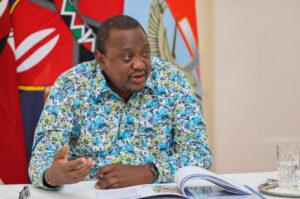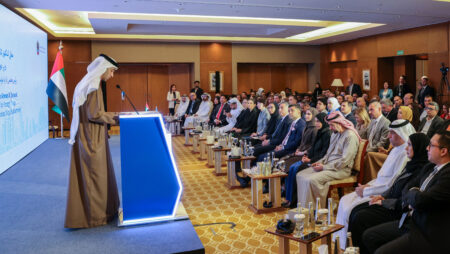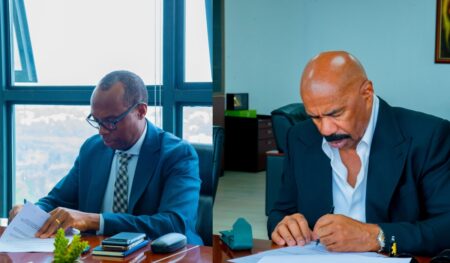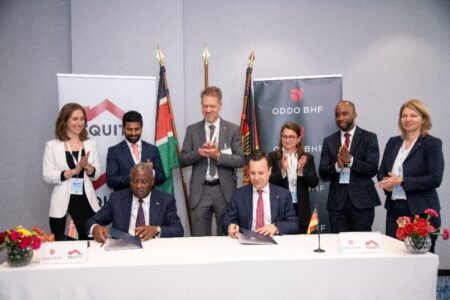- The World Bank Board of Directors has approved a US$150 million to support locally-led climate resilience projects in all rural wards in Kenya
- The program’s development objective is to deliver locally-led climate resilience actions
The World Bank Board of Directors has approved a US$150 million International Development Association (IDA) credit to support community identified and locally-led climate resilience projects in all rural wards in Kenya.
In a statement, the organization says the resources will be channelled through the new Financing Locally–Led Climate Action (FLLoCA) Program.
The program’s development objective is to deliver locally-led climate resilience actions and strengthen county and national governments’ capacity to manage climate risks.
“Kenya has demonstrated leadership in establishing a policy framework to manage climate risk though climate action is still underfunded.” said Keith Hansen, World Bank Country Director for Kenya.
“This financing will support the Government of Kenya meet its climate commitments to increase financing for climate action, and particularly ensure climate financing and actions reach local communities”
At the national level, the program will strengthen the national government’s capacity to support county government actions, enhance the collaboration between national entities on climate change, and facilitate national oversight of the program.
At the county level, the FLLoCA program will be implemented under the Program for Results (PforR) instrument in which counties will receive their annual disbursements based on their performance against a specified results-based criterion.
Notably, 87.5% of the program resources will be spent at the county and community level, demonstrating the commitment to ensure climate finance reaches the lowest levels and those most vulnerable to climate risks. The PforR instrument will support community-level climate resilience investments while at the same time incentivizing system changes and strengthening county governments’ climate finance and governance systems.
“Communities in rural areas, especially those in arid and semi-arid regions which have been affected by the impacts of climate change such as droughts and floods, outbreaks of climate-related diseases, low farmland productivity, and declining livestock, will be the primary beneficiaries of the program,” said Nicholas Soikan, World Bank Senior Social Development Specialist and Task Team Leader.
How green banks and climate funds shield Africa’s development
The program will also address gender and other equity dimensions by ensuring that women, youth, marginalized and vulnerable groups, minorities, senior citizens, poor households, and persons with disabilities will benefit.
In addition, the program will accelerate the use of participatory planning processes, innovation, and climate science. To build sustainability, the program will incentivize counties to create and contribute to county climate change funds.
This support comes in a context where the coronavirus pandemic has strained livelihoods and community wellbeing. The rollout of community-level investments is expected to support local economies and create jobs.
The IDA financing will be supplemented by a grant of $21.4 million from the Social Sustainability Initiative for All Umbrella Multi-Donor Trust Fund with resources from the Governments of Denmark and Sweden, making a total of $171.4 million.
Climate Change action
The funding comes even as President Uhuru Kenyatta has cautioned that in the absence of urgent climate change adaptation action, Africa’s Gross Domestic Product (GDP) risks contracting by up to 30 percent by the year 2050.
“Evidence indicates that climate change will have a devastating socioeconomic impact across the world and quite severely in Afra. If we do not take any action Africa could, as a consequence, see its Gross Domestic Product (GDP) contract by up to 30 percent by 2050 due to climate change,” the President said.

Consequently, the President rallied the global community to support the accelerated rollout of adaptation programmes in Africa so as to mitigate against the growing adverse effects of climate change as well as strengthen the continent’s resilience.
“While it is relatively more difficult to design and implement adaptation projects and while fewer resources are currently available for adaptation, we should not lose sight of the fact that adaptation is, without doubt, smart economics,” he said.
He spoke in a recorded video address delivered Tuesday at a hybrid conference hosted by the University of Nairobi in partnership with the Global Centre on Adaptation (GCA) to celebrate the Africa Adaptation Acceleration Day, a precursor to the United Nations Climate Change Conference (COP26) that will be held in Glasgow, Scotland.
President Kenyatta pointed out that despite Kenya significantly increasing the number of financial resources invested in adaptation programs in recent years, the country needed more international support to fully implement its updated Nationally Determined Contributions (NDCs).
Nairobi slated for Rockefeller’s cities project











